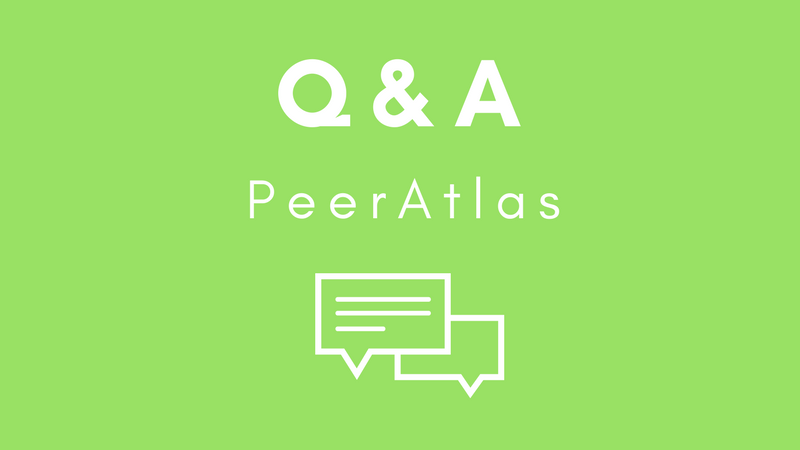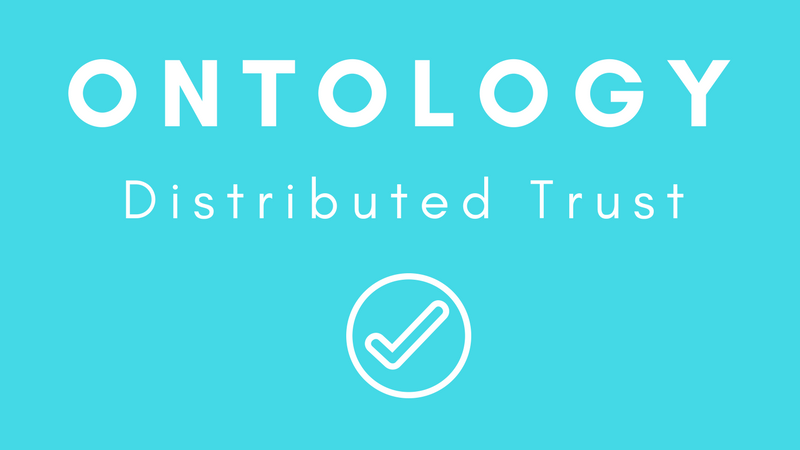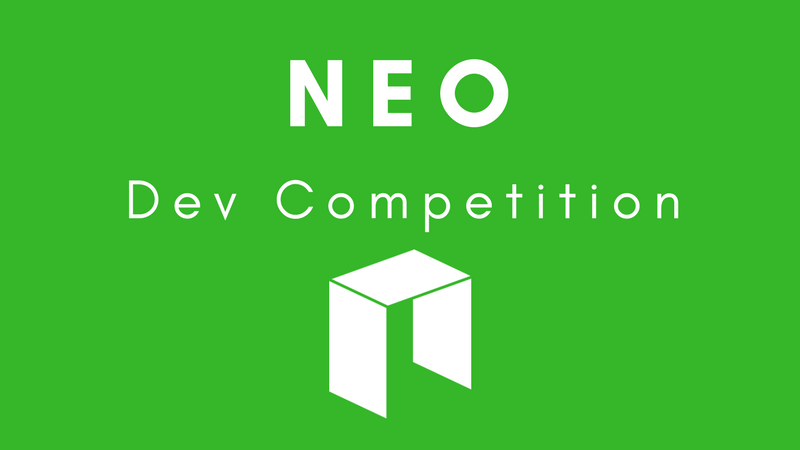
PeerAtlas are on a mission to make valuable medical information free and accessible, and they’re bringing that mission to NEO. PeerAtlas are building a Wikipedia style platform that incentivizes medical professionals to contribute articles and medical algorithms, which will be rewarded with ATLAS tokens. These tokens can also be redeemed for Contributing Medical Education credits (CME). PeerAtlas will be holding a token sale in the near future and we caught up with physician and co-founder Colin Closser to learn a little bit more about the project.
Dean – NEO News Today: Thanks for your time! The whole community is very excited PeerAtlas has chosen NEO as your blockchain of choice. For those who may not have read the white paper yet, can you give us the elevator pitch?
Colin Closser: Thank you NEO News Today for your interest, and before I continue – THANK YOU to the NEO community that has shown us so much love! We are absolutely thrilled to join the NEO ecosystem and formally introduce our PeerAtlas project to the world in the Onchain conference on November 27! PeerAtlas wants to make the best medical advice for doctors available for free, worldwide.
PeerAtlas began in 2011 when my good friend and PeerAtlas founder, Brad Mattson M.D., noticed that the majority of high-quality medical information on the Internet is only available on websites that charge high subscription fees. Brad wanted to create a completely free, high-quality medical information resource, and so he started coding PeerAtlas from scratch. He asked me to join him on the project because I was beginning medical school at the time. (I have since graduated with my M.D.) We have known each other for decades and are firm believers in a open-source Internet where information is free. We grew up watching Wikipedia become a respected worldwide encyclopedia despite early skepticism.
In its spirit, PeerAtlas is close to Wikipedia. However, Wikipedia does not pay its contributors. The content on PeerAtlas must be created and reviewed by experts, and is held to a higher standard than many Wikipedia articles. Doctors should create PeerAtlas, and its information absolutely must be correct! Medicine cannot tolerate errors.
Dean: Can you give us a little bit of information about the founders of PeerAtlas, your experience in the medical profession, and when did that world collide with blockchain?
Colin: Sure! I had been aware of digital currencies for a few years because they were popular on the Internet, but never felt a need to buy any. Brad bought Bitcoin at the end of 2016 and noticed after purchasing that its price was continually on the rise. For my part, I became a full time ANS (Antshares, now known as NEO) trader this summer after graduating from medical school in May and waiting for residency to begin. The summer was successful, so instead of interviewing for residency spots right now, I am full-time with PeerAtlas.
Looking back, my career highlight was at one point personally trading almost 1% of the 24 hour ANS volume across all exchanges worldwide. This prolonged skin in the game allowed me to quickly write the first PeerAtlas whitepaper in July, when we realized that a token could be used as an ethical crowdfunding source to pay PeerAtlas contributors. In my opinion, the world of blockchain and the world of medicine have yet to collide, but we are leading the charge. The NEO team in particular grasped the utility of our project from the very beginning, and we owe them a debt of gratitude for their informal yet continuous advice and encouragement. Physicians are more late to the party, because blockchain developers use health care, but doctors don’t use currency markets.
Brad is a board-certified radiologist with a more normal history of blockchain research and investment as a hobby alongside his steady hospital job.
Dean: Your white paper is a really interesting read, and it never ceases to amaze me all the ways in which blockchain technology can be applied to improve our old ways of doing things. I thought there were a few terms that might be important for readers to understand to get the full scope of what you’re trying to achieve. Can you explain ‘medical algorithms’ and ‘CME’?
Colin: Medical algorithms are flowcharts that are developed with extensive clinical research to help guide the decisions of medical professionals. For instance, if your heart stops in a crowded shopping mall and you’re dragged into an ambulance, the ambulance staff will give you treatment according to a medical algorithm.
CME refers to Continuing Medical Education credits, which are required annually to maintain a doctor’s Board-certified status in their specialty.
Dean: You’re on a mission to ‘remove the worlds most unethical paywall’ and provide free access to medical articles and algorithms. As you note in your white paper, most blockchain enthusiasts wouldn’t have had much experience in the medical world, so can you paint a picture for us as to why this paywall is such a pain point? What does a typical user paying for access to this information look like, what are they trying to achieve, and what kind of fees are we talking about?
Colin: These paywalls make my blood boil, and it is true that we are on the warpath. After graduating this summer, I wanted to access the latest research about the effects of long-term naproxen (Aleve) on the kidneys of my own mother. However, I couldn’t find professional quality information on the Internet because my subscription from medical school had expired. Hospitals and medical schools usually buy subscription access for their entire institution, and pass along the cost to health care insurers and patients. This PeerAtlas project has become personal to me.
The typical user of the subscription is a Western doctor employed by a hospital. The hospital provides the doctor with this gold standard of information to answer their questions or research everyday treatment decisions. Most of the smaller private clinics that I trained at did not subscribe.
An individual license for a doctor is about $500 USD per year.
Finally, Brad and I acknowledge disagreement. There are members of the medical community who argue that a paywall is NOT unethical, because it is necessary to create and maintain high-quality information. This debate could probably go on for the rest of eternity. Our opinion remains that a paywall is at the very least unnecessary, and also unethical.
There are physicians in countries around the world who either can’t or don’t pay subscription fees, and as a result they are not treating their patients with the most up-to-date information. In addition, medical research is often funded by taxpayer dollars, so we feel that the taxpayers should benefit from it.
Dean: Building a medical library is no small task. How do you do plan to build up your content database, and how long do you envision it will take to get it to a point where it’s big enough to be really useful?
Colin: We have designed an approach that relies on paying upfront for high quality content at first and then switches to crowdfunding its contributors through ATLAS donation links for a financially sustainable approach to paid content. This is our strategy to acquire professional, paid content, forever.
In the beginning, PeerAtlas will focus on only a few specialties which we feel are the most useful and attractive to new professionals. Creating a complete high-quality medical encyclopedia is a large project which will take years to fully achieve. However, because we will add specialties gradually, we can be useful to certain doctors more quickly. We think that we can be really useful to selected specialties less than a year after the ICO is completed. Two specialties that come to mind for immediate addition are Emergency Medicine and Internal Medicine.
We will be aggressively recruiting physician authors, editors, and peer-review experts immediately after the ICO while redesigning the software for a more user-friendly experience. Again, this will be done one specialty at a time.
Community feedback will be very important as well to suggest added features. For example, I would like to add a night mode to PeerAtlas! Where there are good people, there are good ideas.
Dean: Moving away from the medical side of things and onto tech, can you explain why you decided blockchain is the appropriate solution for PeerAtlas, why you chose NEO, and what the utility of the token will be?
Blockchain is the only solution I have thought of where PeerAtlas gets to offer paid content, forever, for free.
We choose NEO with open hearts because we firmly believe that NEO is the best all-around blockchain. Specifically, dBFT is an amazing consensus mechanism, and ATLAS will have it. Da Hongfei is the Cadillac of co-founders. And Brad and I deeply respect and trust the whole NEO team, full stop.
The ATLAS token will have the utility of being redeemable by medical professionals for CME credits. From that core utility, an entire economy emerges with markets and a crowdfunding ecosystem. And although CME credits may seem trivial to nonprofessionals, the CME industry grosses more than a billion USD per year.
Dean: I’ve done a bit of digital work in the pharma space and, at least in my experience, everything in that industry from a digital standpoint moves notoriously slow. Do you think it’s going to be a challenge getting medical professionals to adopt blockchain technology and understand the value of your token? What strategies are you planning to implement to onboard contributors and help them through that learning curve?
Colin: Your experience is correct. As I mentioned, doctors are absolutely late to the party. At first, we will have to drag them into the blockchain era, one phone call at a time. When building the library at first, we might have to sell our GAS and offer some of the older, more prestigious contributors fiat currency for their efforts. I will say that younger physicians are quicker to learn new tricks, so this problem won’t last forever. It’s not a coincidence that Brad and I are both young physicians.
Doctors won’t have to value ATLAS to use our site at first, in fact, they won’t even have to log in. But eventually, doctors who use the site may want to tip their favorite contributors and redeem the CME credits they have accumulated. When they are ready to enter our world, ATLAS will be ready too, and many people that use blockchain are permanently hooked. My dream is a token with a fixed supply, powered by NEO’s Byzantine Fault Tolerance consensus mechanism, that doctors want to buy.
Dean: The community is no doubt wondering if you can provide any details on your token sale. Is there anything you can reveal to us yet on this front? Have you set any dates, tentative or otherwise?
Colin: PeerAtlas will offer half of its ATLAS tokens to the general public as soon as possible, at the end of the year or a little after. Further details about ATLAS can be found in the white paper. We will accept NEO.
Certain groups that we highly respect and VCs associated with them have expressed interest in a presale, so we will likely offer one before the token sale. Details will come soon.
Dean: If people want to follow the PeerAtlas project, where should they go?
Colin: Our community group is on Telegram: @peeratlas or t.me/peeratlas. All aboard! Brad and I personally invite your readers to say hello to us, mingle, and ask questions.
The @peeratlas Twitter is less serious.
We will announce a PeerAtlas AMA on Reddit’s /r/NEO very soon.
And our website is www.peeratlas.com, where your readers can create and interact with Brad’s vision for themselves.
Dean: Do you have any final thoughts you’d like to leave our readers?
Colin: Last call? I got this far from zero in the world of blockchain by sleeping on the floor of my trading room. I don’t trade full-time anymore, but I’m not done sleeping on the floor. ATLAS will certainly succeed for two reasons: Because NEO is the best community, and because I say so.







About The Author: Dean Jeffs
Dean is a digital project manager who has worked extensively with start ups and agencies in the marketing space. Fascinated by the potential applications of blockchain technology, Dean has a passion for realising the new smart economy.
More posts by Dean Jeffs